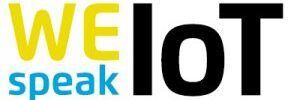IoT satellite communication with the extended 5G standard NR NTN: This article explains how it works and who the providers are.
A huge topic within the Internet of Things is the question about how to connect all the different standards on the market. In this category we try to find answers.
IoT satellite communication with the extended 5G standard NR NTN: This article explains how it works and who the providers are.
With this certification, the GSMA confirms that Thales’ eSIM solution meets the highest requirements for security and functionalit
A complete guide to essential IoT protocols like MQTT, CoAP, LoRaWAN, Zigbee, Matter & more – for smart home, industrial IoT, and M2M use cases.
Mobile IoT connectivity describes the possibility of conneting sensors directly via mobile radio using built-in SIM cards. This allows the devices to be operated independently of an additional communications infrastructure, as would be necessary with Zigbee, Matter, WLAN or LoRa, […]
Under the leadership of the Zigbee Alliance, many well-known manufacturers have been working for some time now on a uniform standard for devices in the smart home. “Connected Home over IP” (CHIP), as it has been called so far, is not based on the Zigbee protocol, but on WiFi, Thread and Bluethooth. Now the cat is out of the bag: The Zigbee Alliance has renamed to Connectivity Standards Alliance, and CHIP became “Matter”.
Seit sich Ende 2019 Amazon, Apple, Google, Comcast und die Zigbee Alliance zusammen getan haben um mit „Connected Home over IP“ oder kurz „CHIP“ einen neuen Standard für die Hersteller-übergreifende Vernetzung von Geräten im Smart Home zu etablieren, hat man nur wenig gehört. So richtig bekannt ist das Projekt heute noch nicht. Nicht einmal die deutsche Wikipedia hat einen Eintrag dafür. Doch erste Geräte könnten vielleicht schon im Laufe des Jahres verfügbar werden.
The eSIM technology, a SIM card for mobile communication in the form of a fixed chip on the hardware of the device manufacturer, is becoming the key technology for the Internet of Things. At least, that’s what the new IDC […]
As part of the Mobile World Congress 2018 in Barcelona, Deutsche Telekom is presenting the first data flat rate offer for networked IoT devices in partnership with the Cologne-based mobile communications provider 1NCE. Alexander P. Sator, founder and CEO of […]
Open Standard: With Project_Things and the Web Thing API, Mozilla introduces a gateway and an open API for connecting IoT devices to the Internet.
With new ideas, new technologies and new smart products emerging every year, one big challenge for devices in the Internet of Things remains: How can we make them understand each other? A huge number of manufacturers and products using different protocols plus a wide range of platforms with non-interoperable networking technologies are making the IoT too complicated to handle.

To provide the best experiences, we and our partners use technologies like cookies to store and/or access device information. Consenting to these technologies will allow us and our partners to process personal data such as browsing behavior or unique IDs on this site and show (non-) personalized ads. Not consenting or withdrawing consent, may adversely affect certain features and functions.
Click below to consent to the above or make granular choices. Your choices will be applied to this site only. You can change your settings at any time, including withdrawing your consent, by using the toggles on the Cookie Policy, or by clicking on the manage consent button at the bottom of the screen.